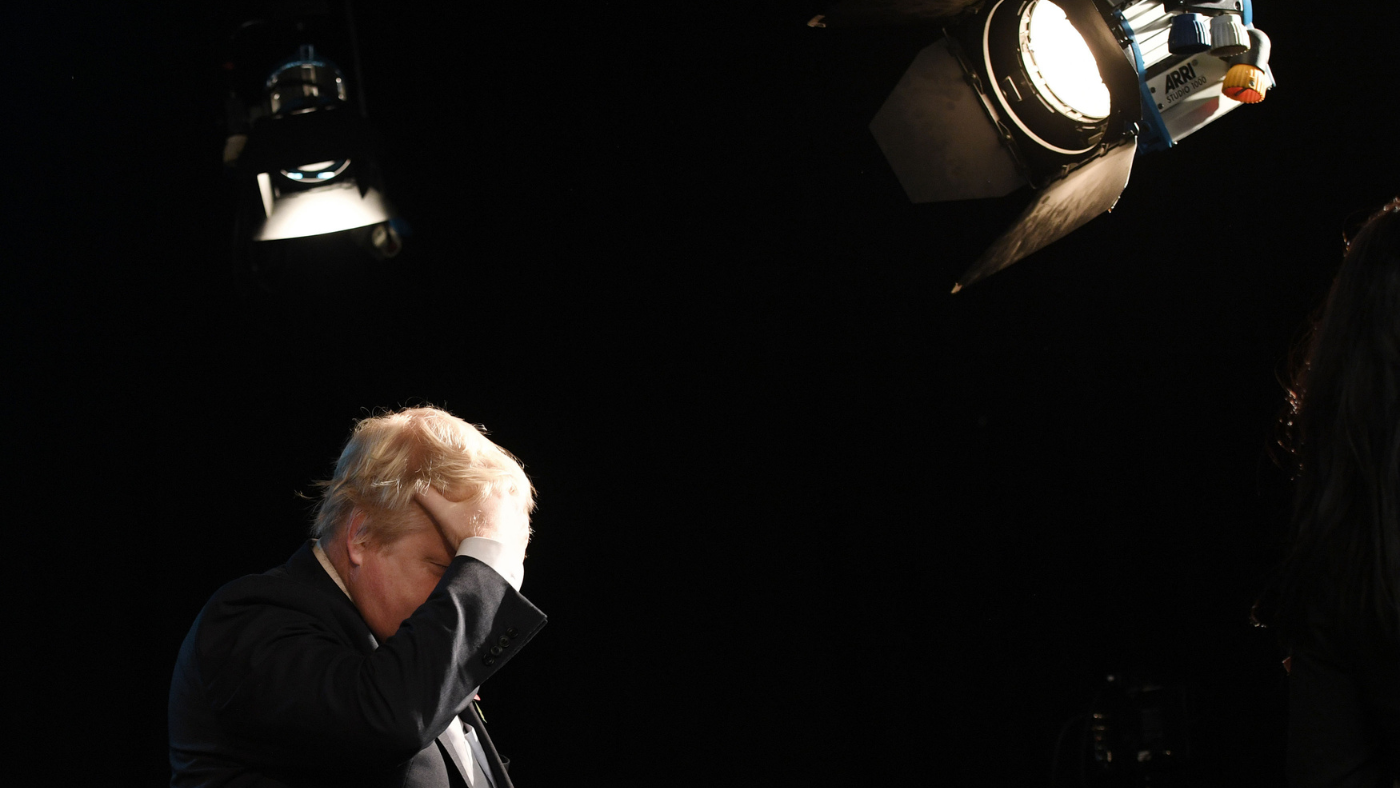The ever-blurring boundaries between celebrity and politics
The prevalence of media platforms has given further rise to the theatrical elements of politics, experts say

A free daily email with the biggest news stories of the day – and the best features from TheWeek.com
You are now subscribed
Your newsletter sign-up was successful
Politicians have for centuries borrowed techniques and tropes from performers and celebrated individuals in order to create their own public-facing characters.
Historically, some relied on props and rhetoric to win over the electorate in the UK; Benjamin Disraeli was known for his dandyish style, Winston Churchill for his radio addresses and iconic homburg hat, and Harold Wilson was often seen with a pipe in hand to appeal to the working classes, despite reportedly preferring cigars.
“An element of theatre and performance has always been essential in democratic politics,” said The Observer’s Will Hutton. And a “ceaseless struggle for media attention in our modern political environment” has more recently given rise to a breed of politicians who become celebrities in their own right, said Betto van Waarden, historian of media and politics at Lund University, Sweden, at The Conversation.
The Week
Escape your echo chamber. Get the facts behind the news, plus analysis from multiple perspectives.

Sign up for The Week's Free Newsletters
From our morning news briefing to a weekly Good News Newsletter, get the best of The Week delivered directly to your inbox.
From our morning news briefing to a weekly Good News Newsletter, get the best of The Week delivered directly to your inbox.
These politicians “style themselves as appealing public personae”, with frequent appearances and “proactive” media engagement. Think of the “charismatic” former US president Barack Obama or the “clownesque” Prime Minister Boris Johnson, who have both “converted the resulting media attention into political power”.
Under the spotlight
“Name recognition” and “celebrity offers a number of important advantages to aspiring politicians,” said Olga Khazan in The Atlantic, particularly among the American electorate. Most Americans, she said, consume more television than political news, “so they see more actors than they do legislators”, giving them a unique advantage over less politically engaged voters.
Ronald Reagan and Arnold Schwarzenegger are among the household names who ditched careers in showbusiness in favour of the political sphere. Reagan became the 40th US president in 1981, and famously later said: “there have been times in this office when I wondered if you could do the job if you hadn’t been an actor”.
Celebrities “can attract the necessary attention from the media” to win an election “without any prior political accomplishment”, said Professor Natasha Lindstaedt at the University of Essex, writing at The Conversation. The Apprentice star Donald Trump’s “antics earned him nearly $5bn (£4bn) worth of free airtime during the 2016” presidential campaign, giving “America’s most famous and colourful billionaire” a huge platform to reach voters, said the BBC.
A free daily email with the biggest news stories of the day – and the best features from TheWeek.com
Other famous names such as Kanye West have shown an interest in taking a run at the White House, while opinion polling suggests voters would like to see Dwayne “The Rock” Johnson throw his name in the hat for the top job. “It’s possible that because of how polarised our politics have become, celebrities are seen as attractive alternatives to politicians”, said US website fivethirtyeight.com. Being an “outsider” of the political sphere can be a benefit to stars-turned-candidates.
And although the UK is yet to see a leader of similar pre-political fame as Trump, a number of MPs have followed a similar route. Two-times Oscar-winning actor Glenda Jackson was an MP for more than 13 years, and today, former Coronation Street star Tracy Brabin and television presenter Esther McVey sit in the House of Commons.
‘Performative posturing’
Some say that new media and technologies have blurred the lines between celebrity and politics further than ever before.
Voters “need their passions stirred” and “values touched”, but social media has, argued The Observer's Hutton “degraded political theatre into performative posturing”. And in his view, Johnson and his government “have shown the limits of theatre and showmanship over substance, reason and integrity”.
In contrast to the media-ready Johnson, Labour leader Keir Starmer told The Telegraph this week: “I don’t buy into the argument that politics is a celebrity business and you have to be a showman.” He thinks “the country’s a bit tired of the idea that it’s all a bit of entertainment”.
“The histories of celebrity politicians and their anti-celebrity counterparts are intertwined”, continued van Waarden at The Conversation. Less flamboyant politicians – or “anti-celebrities” – could offer an “antidote” to more theatrical leaders.
The Overview
So has the cult of personality come to overshow policy in the political sphere? Is there such a thing as ‘bad PR’ in the age of the celebrity politician? And could the next generation of voters be more politically engaged as a result of this phenomenon?
In this episode of The Week’s podcast The Overview, Paul Richards, an author and political trainer, Joe Twyman, co-founder and director of Deltapoll, and Sharon Coen, senior lecturer in media psychology at the University of Salford, share their expert insights on the celebritisation of politics.
Julia O'Driscoll is the engagement editor. She covers UK and world news, as well as writing lifestyle and travel features. She regularly appears on “The Week Unwrapped” podcast, and hosted The Week's short-form documentary podcast, “The Overview”. Julia was previously the content and social media editor at sustainability consultancy Eco-Age, where she interviewed prominent voices in sustainable fashion and climate movements. She has a master's in liberal arts from Bristol University, and spent a year studying at Charles University in Prague.